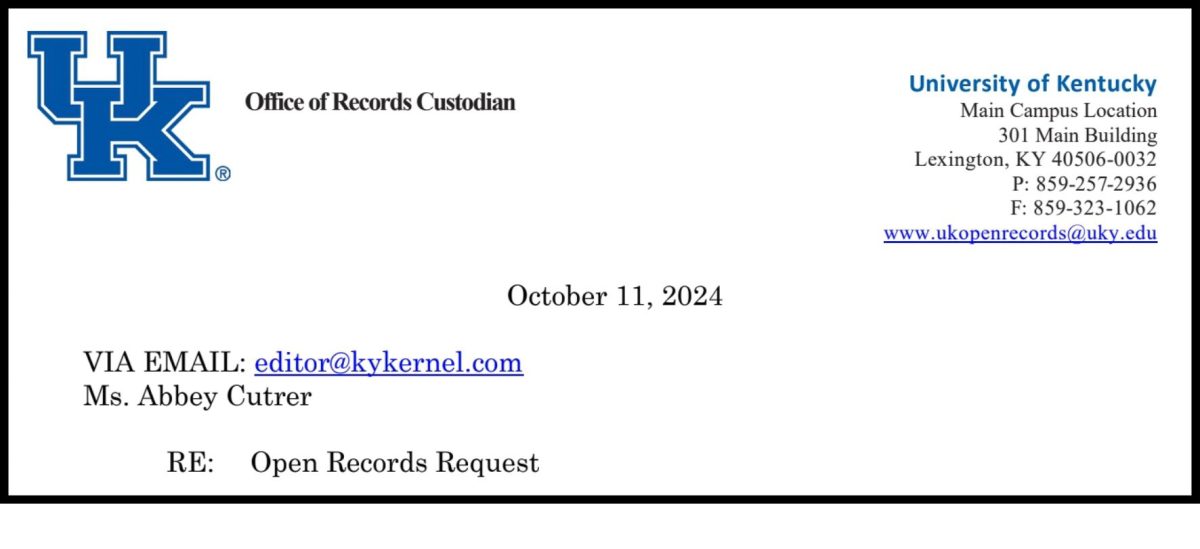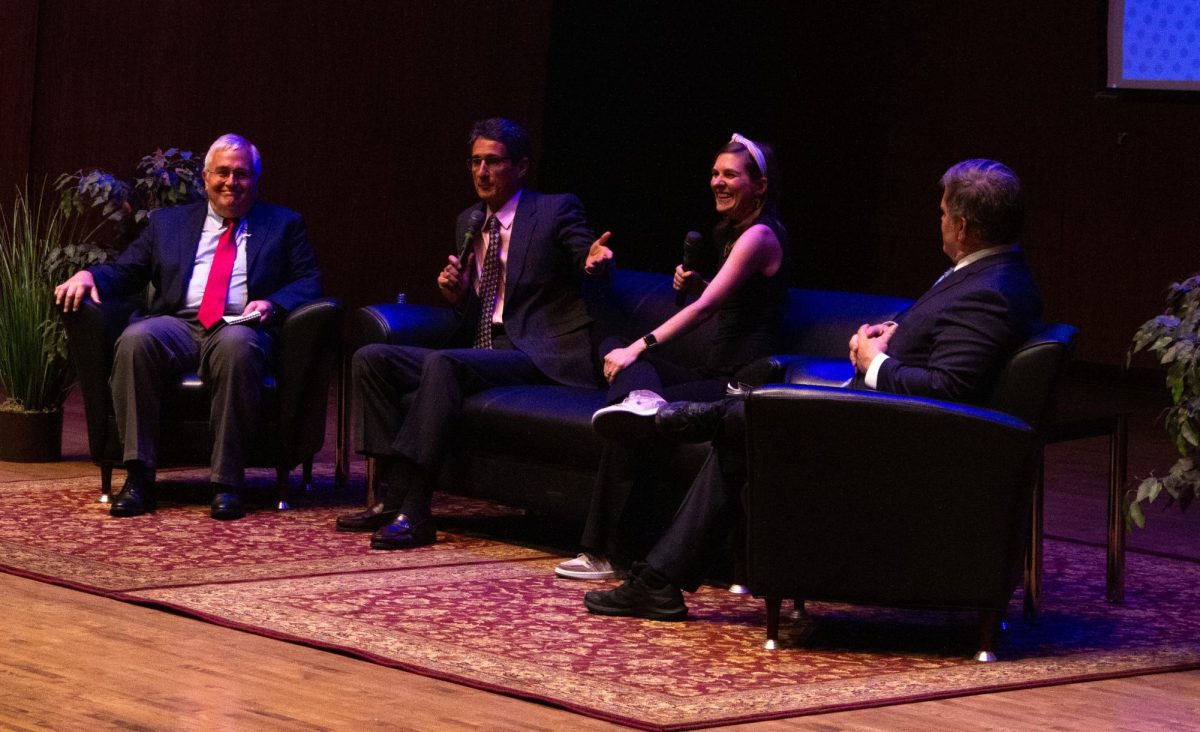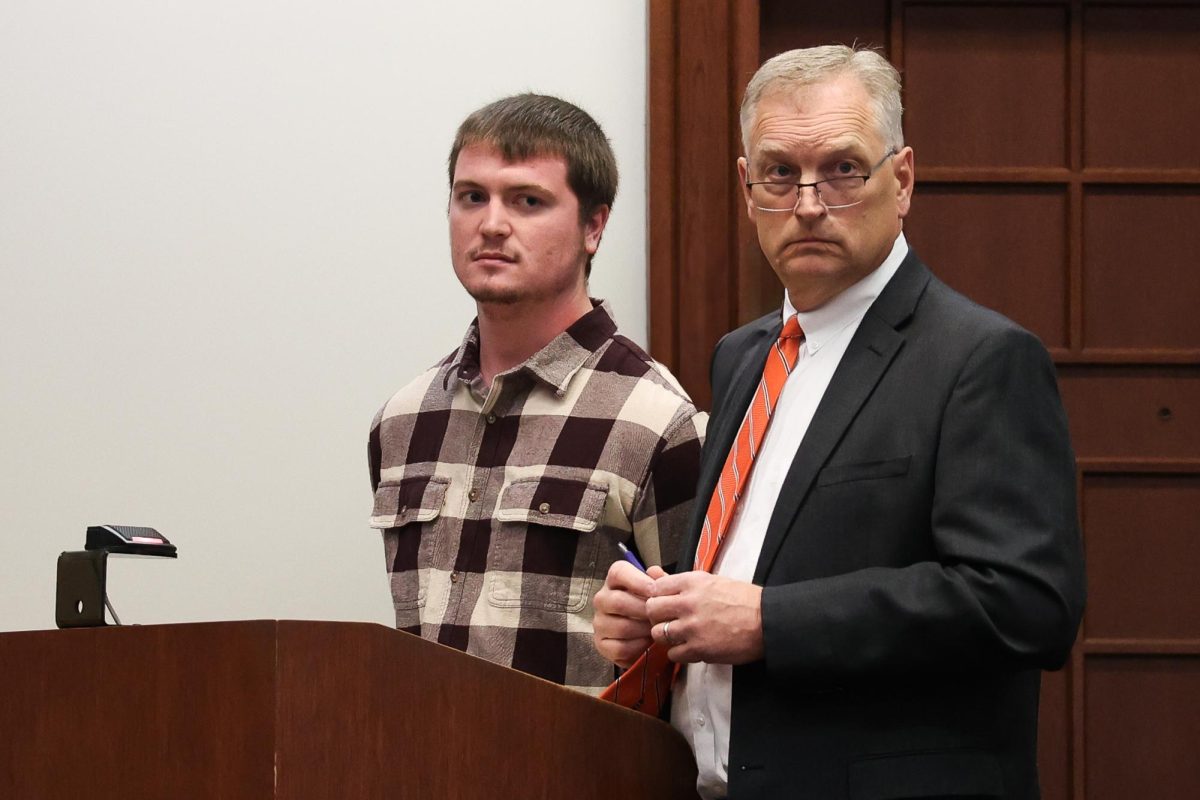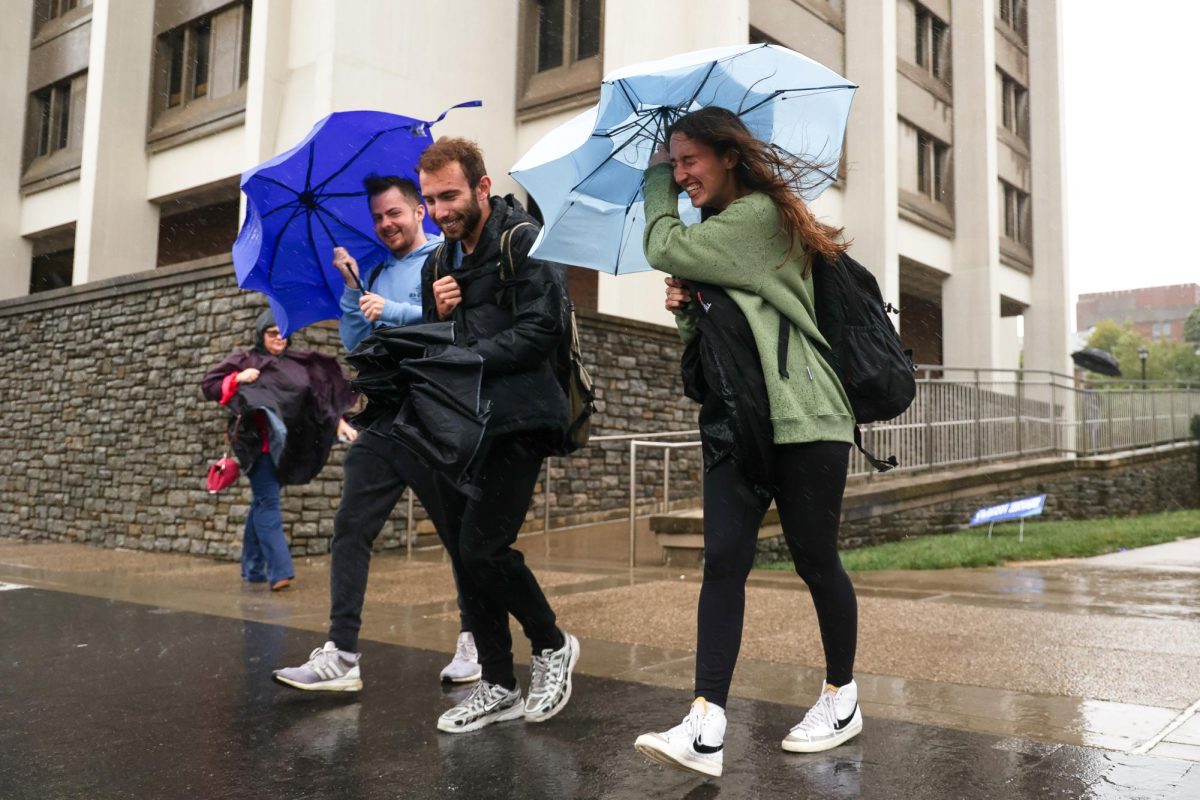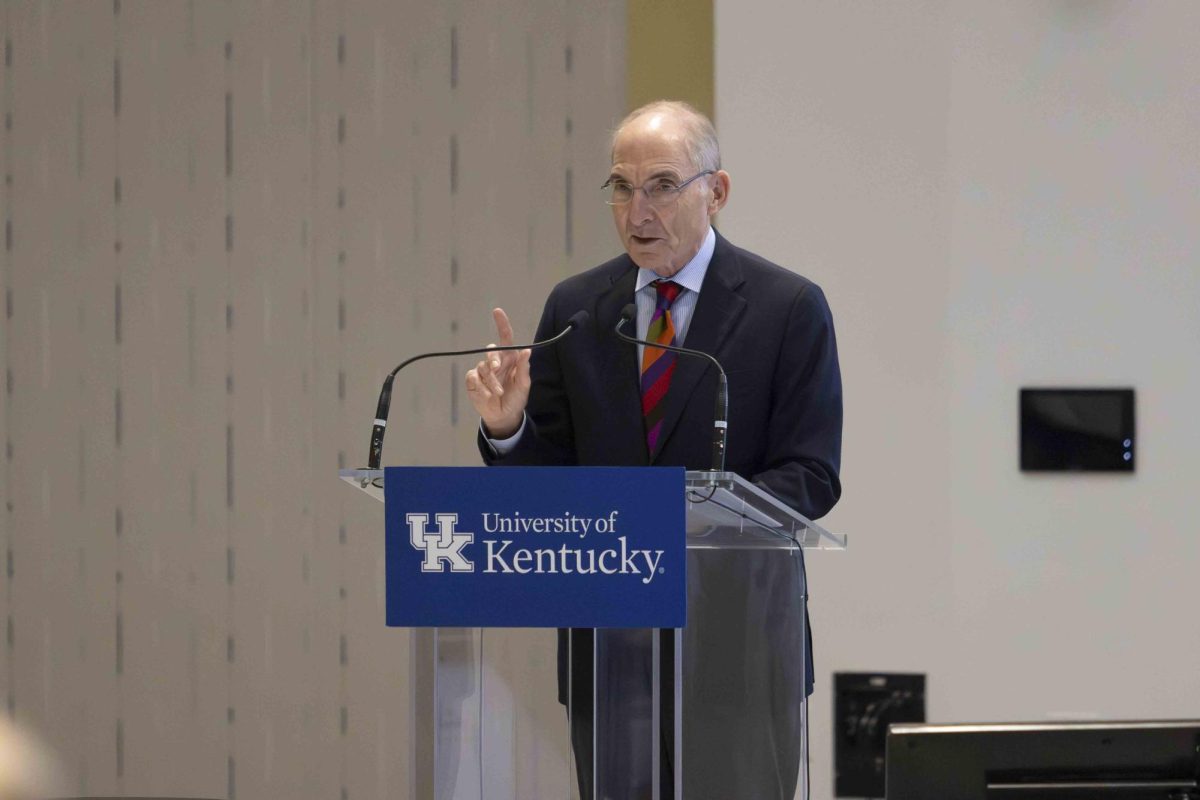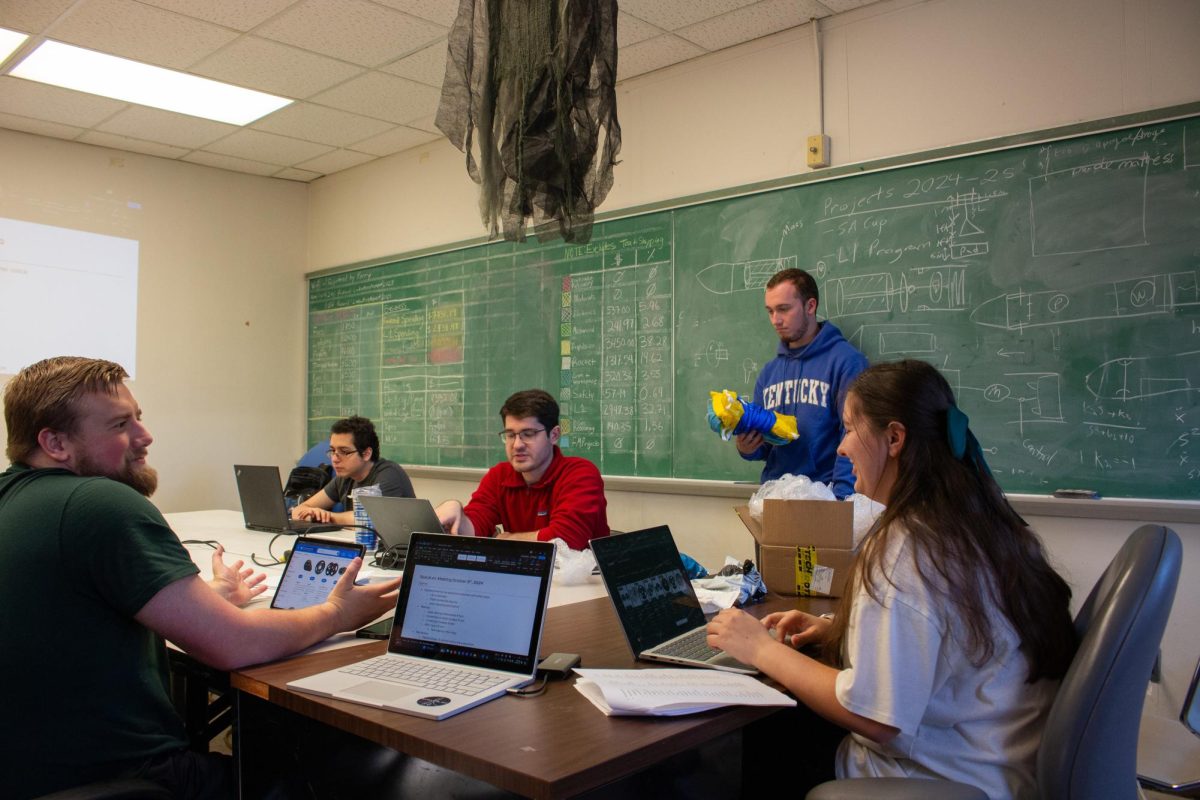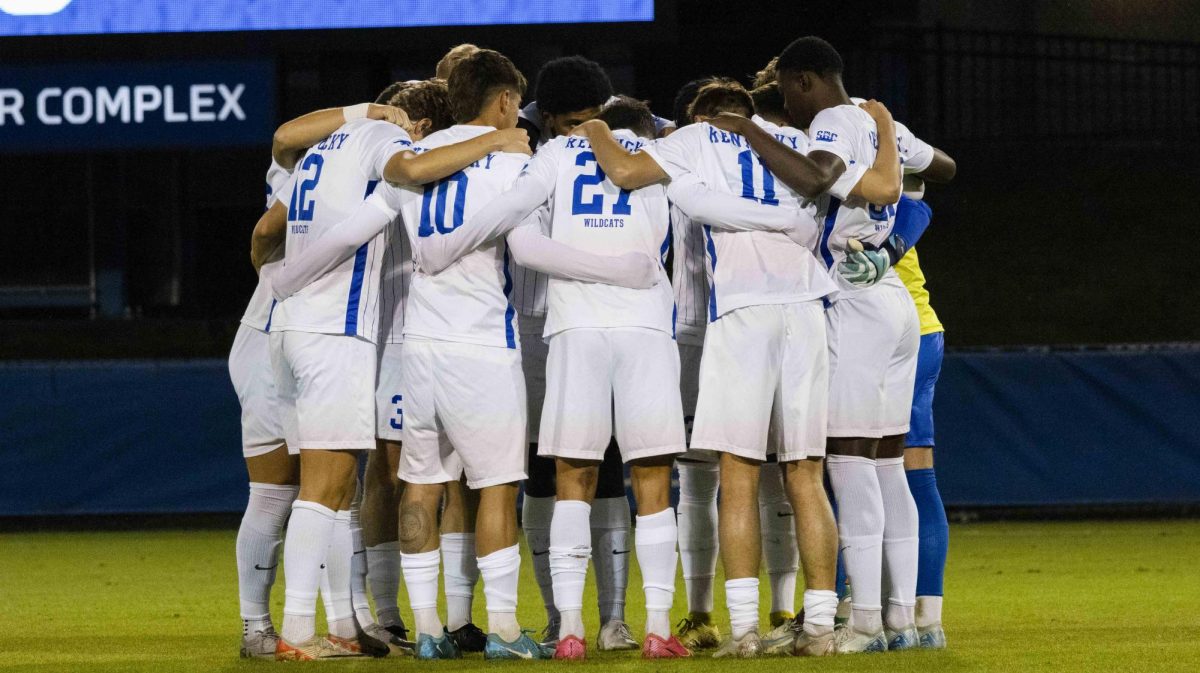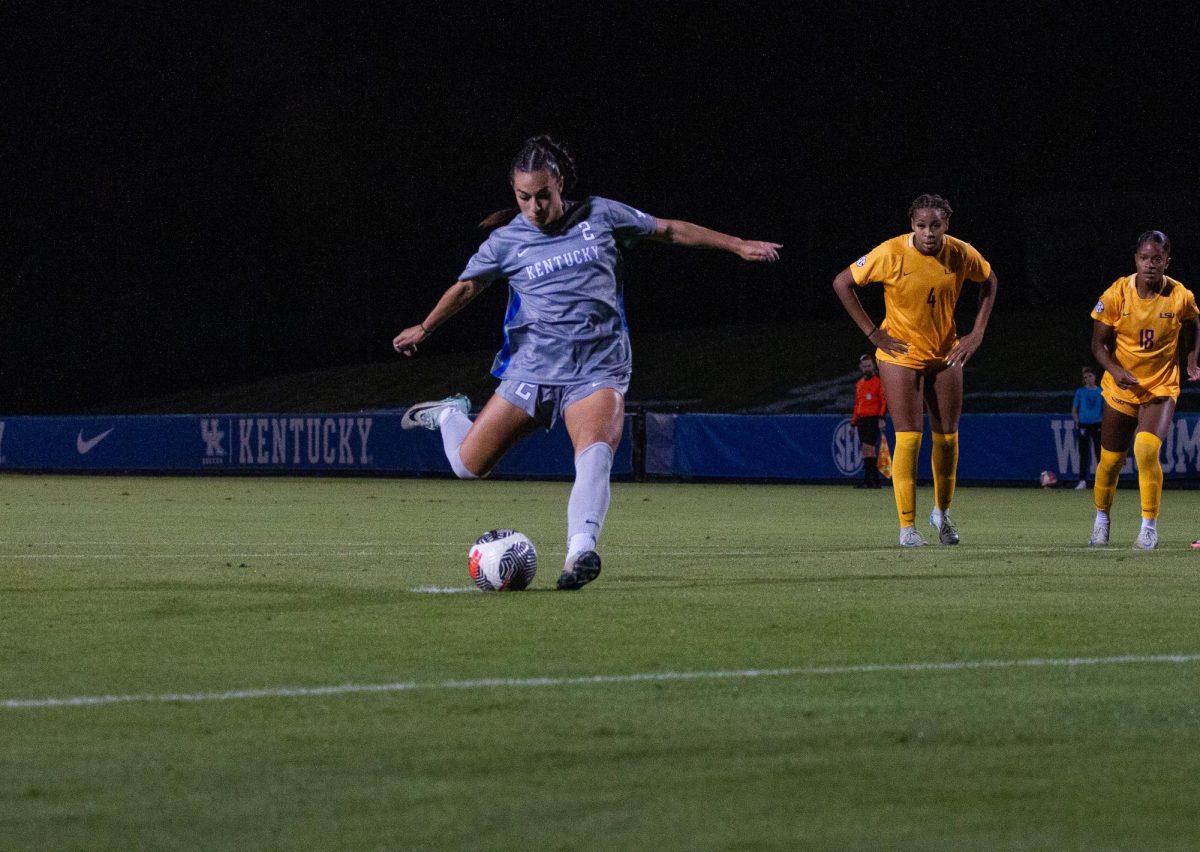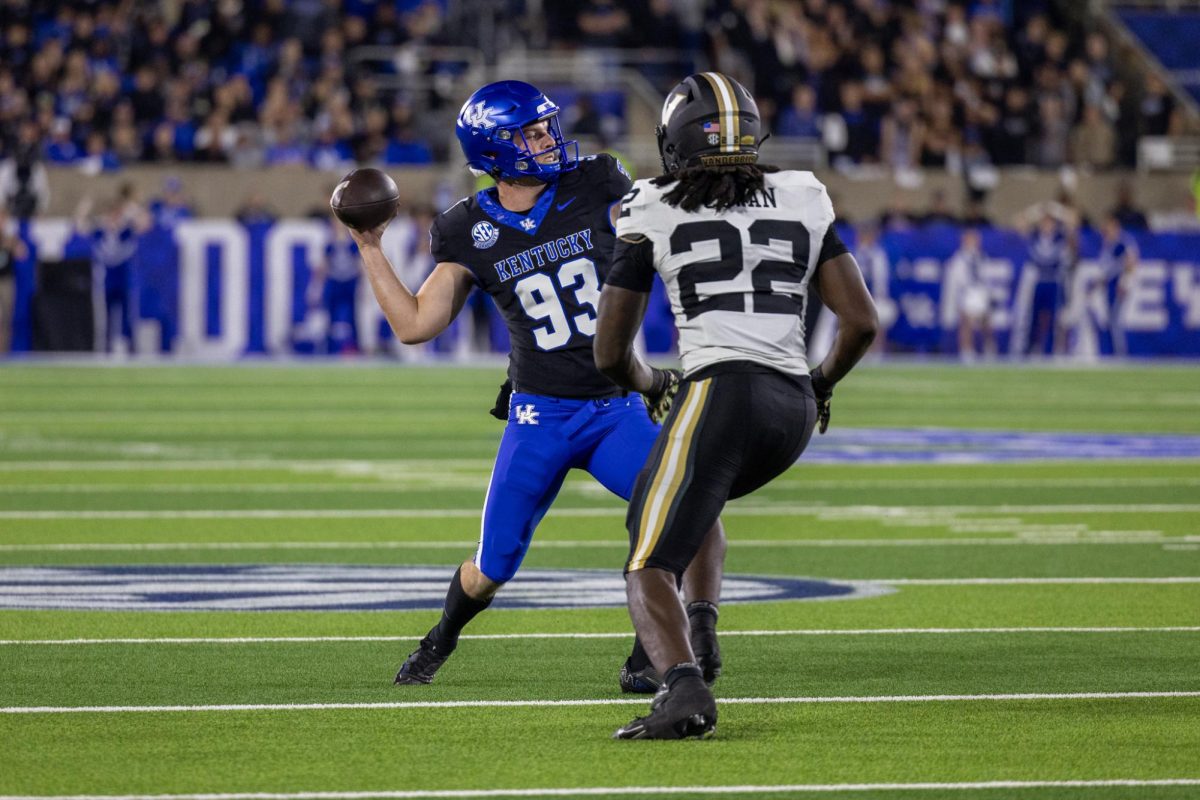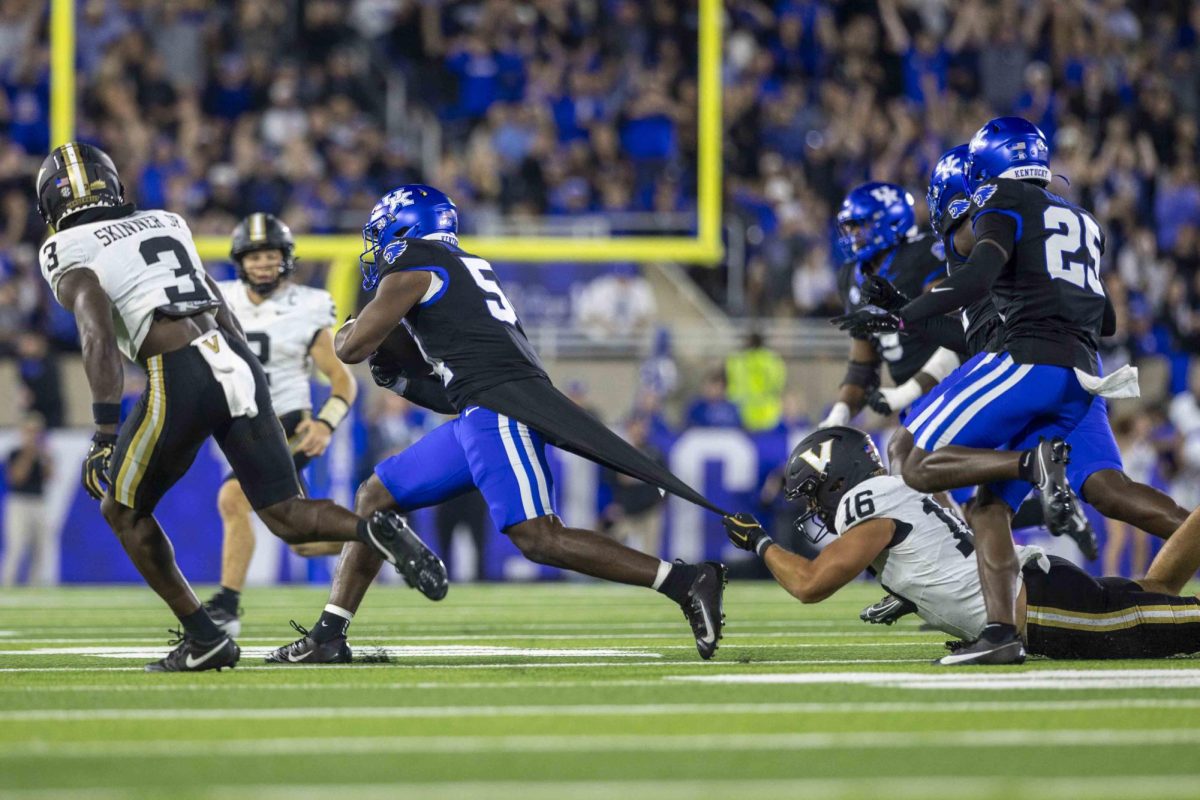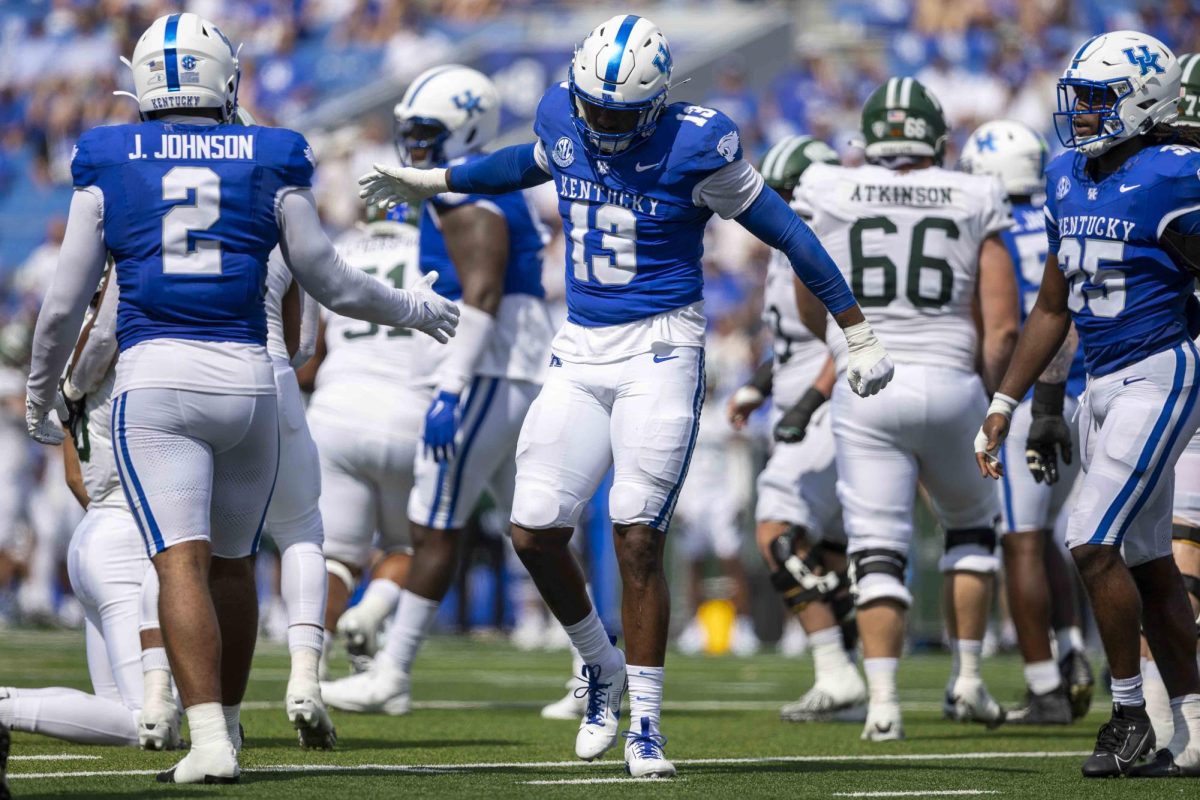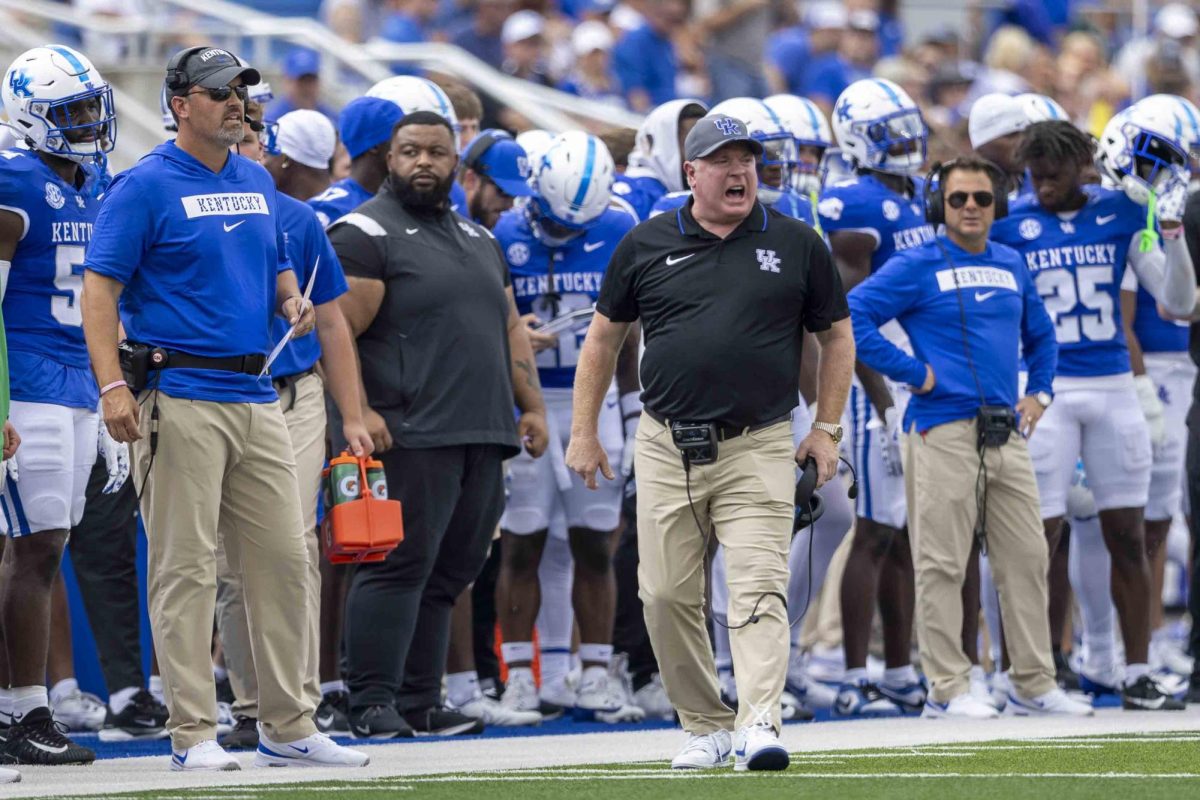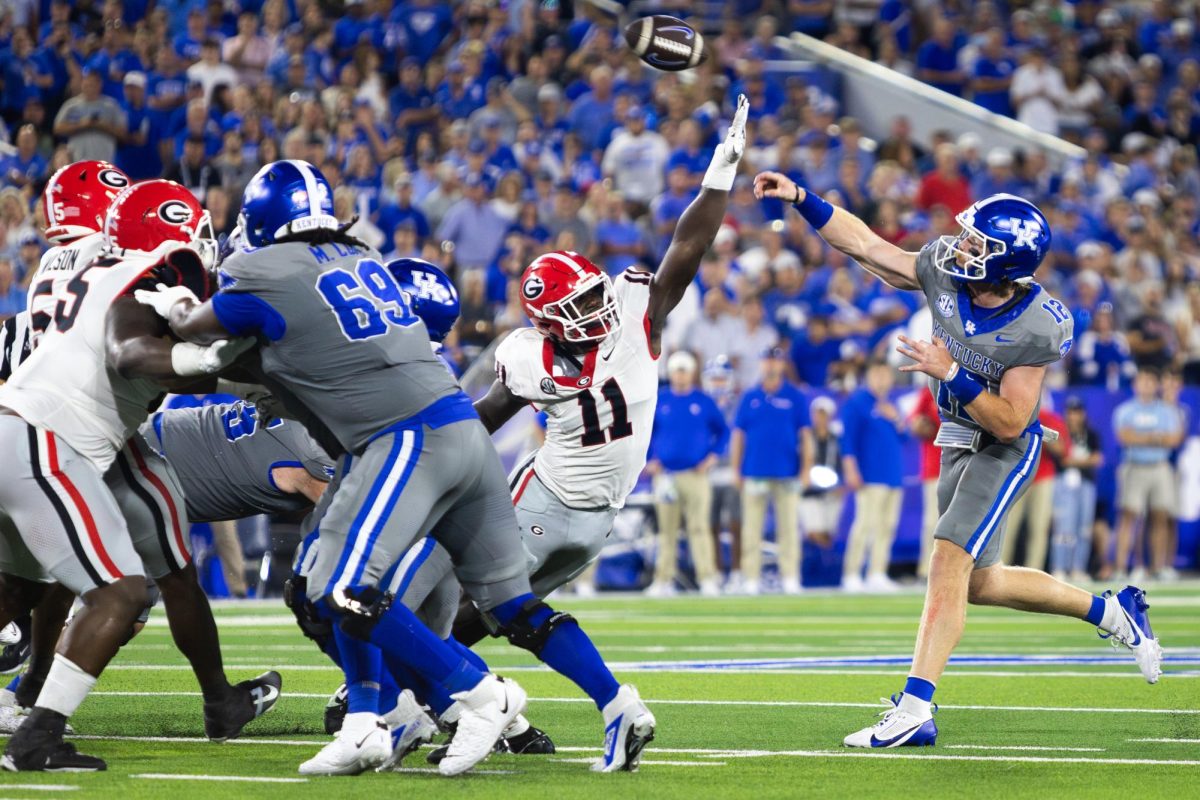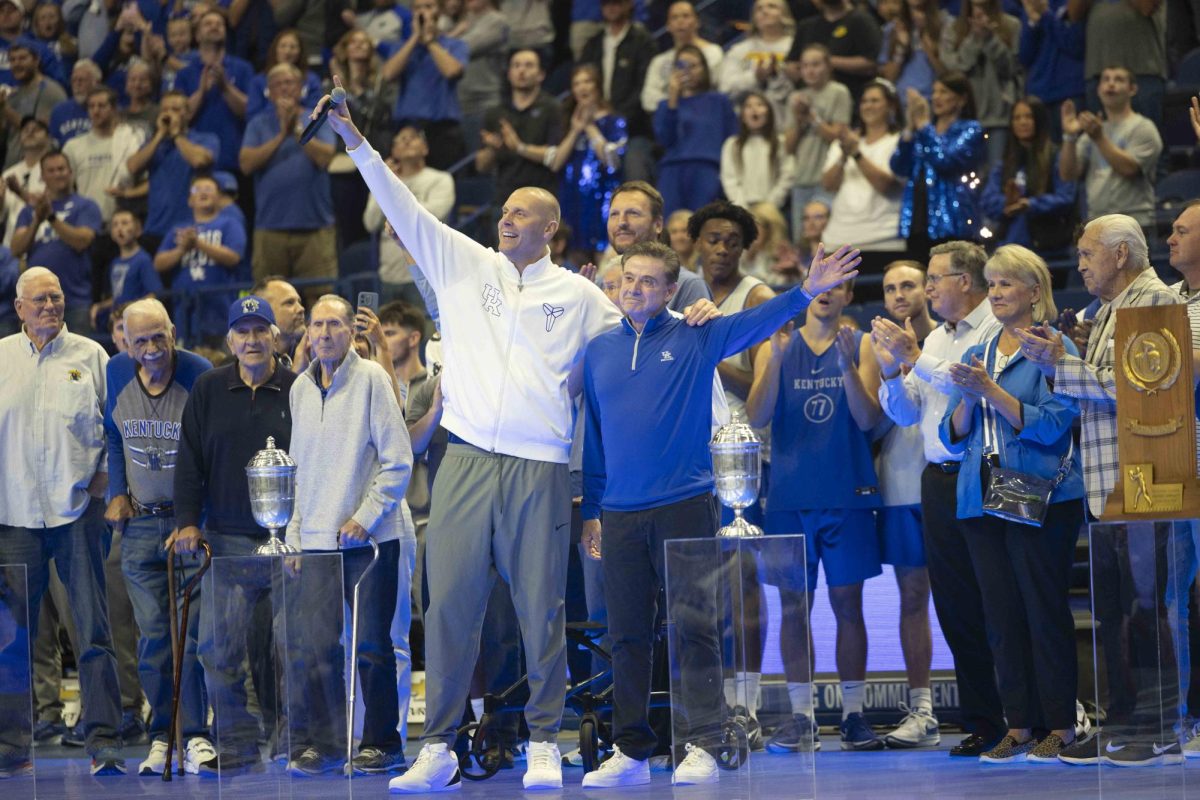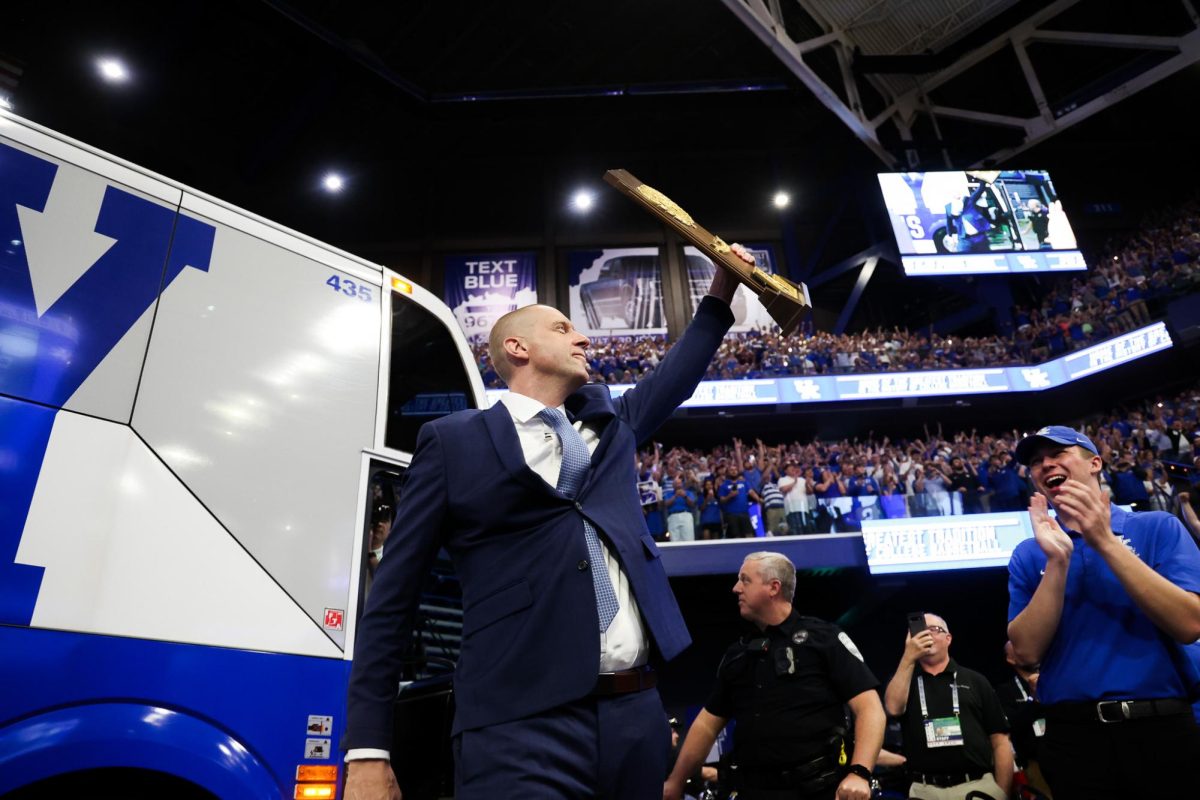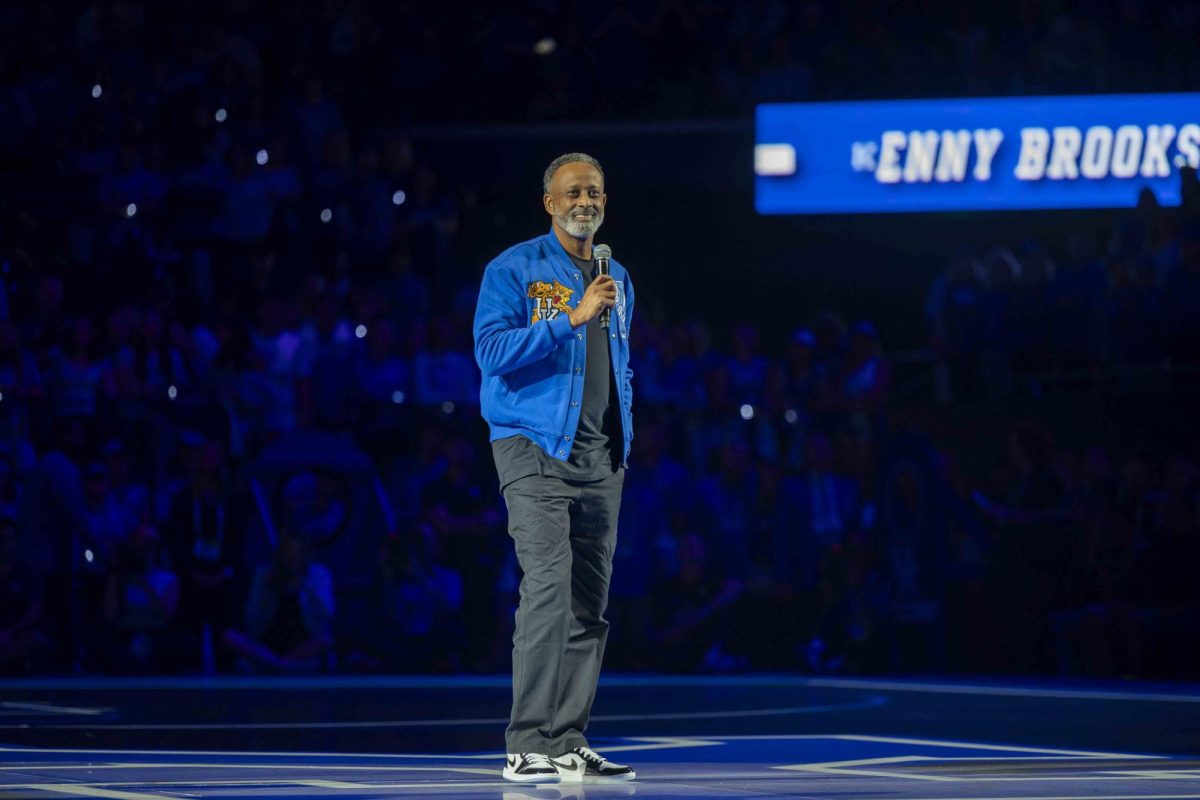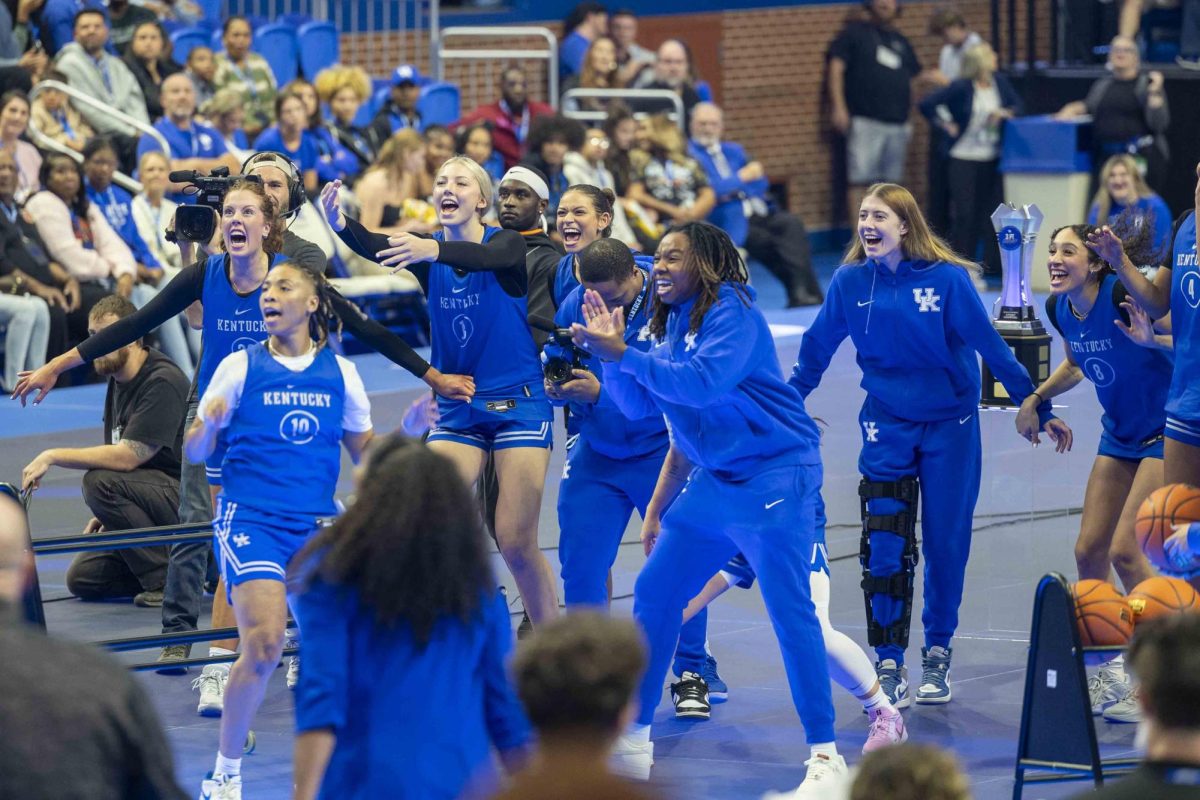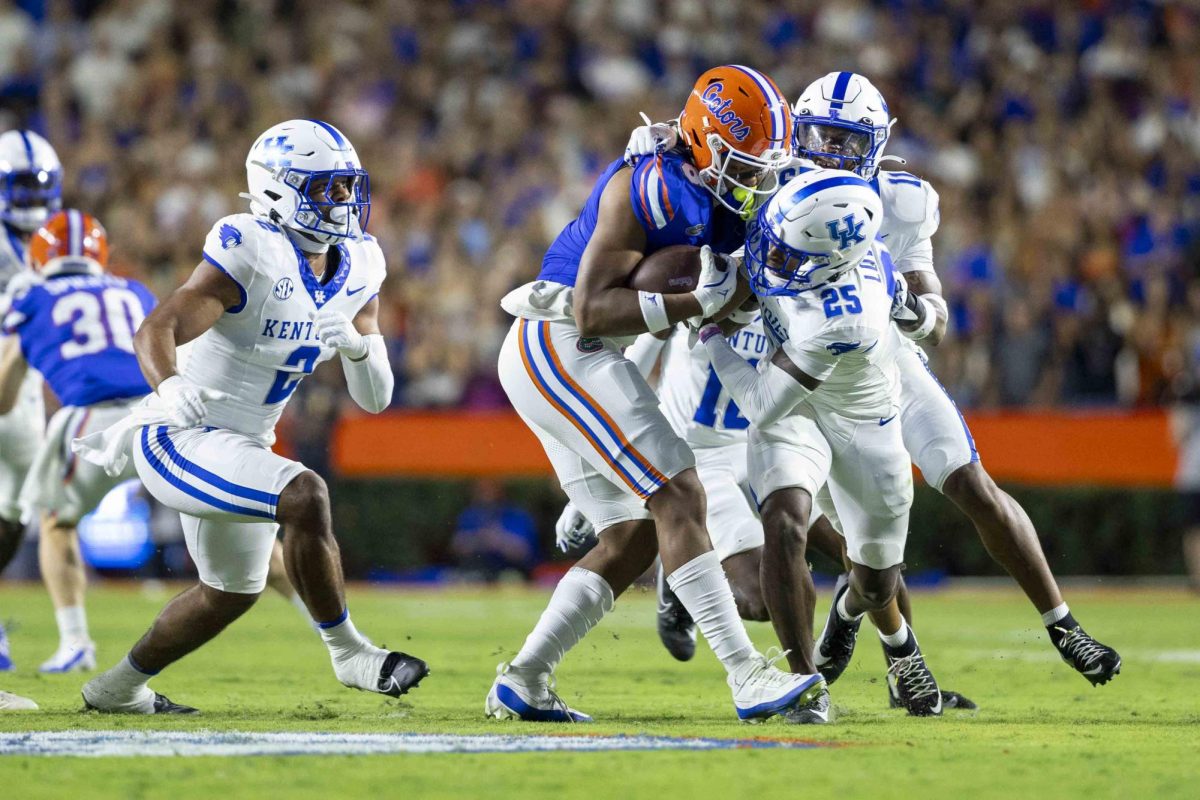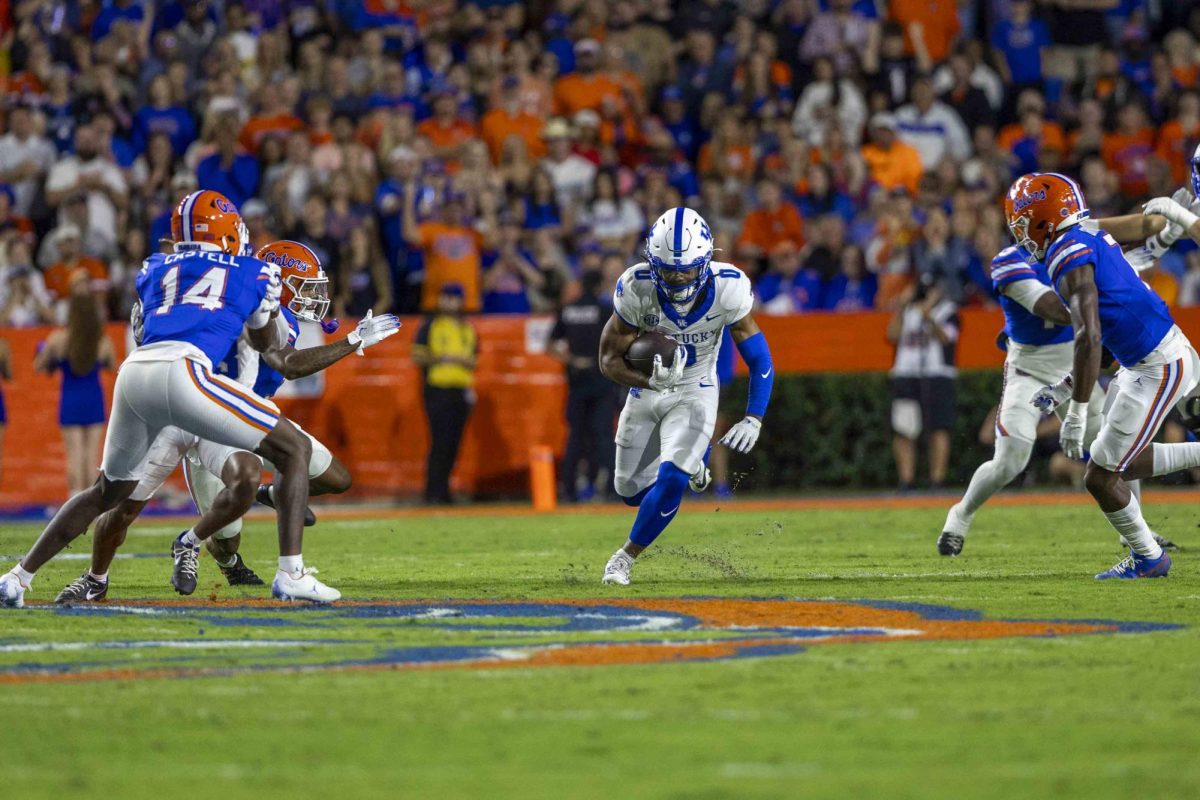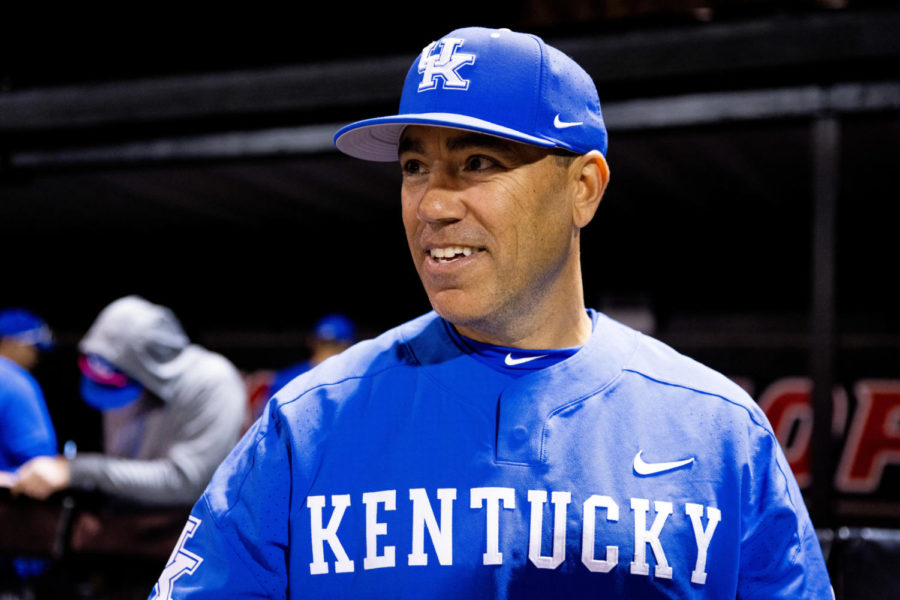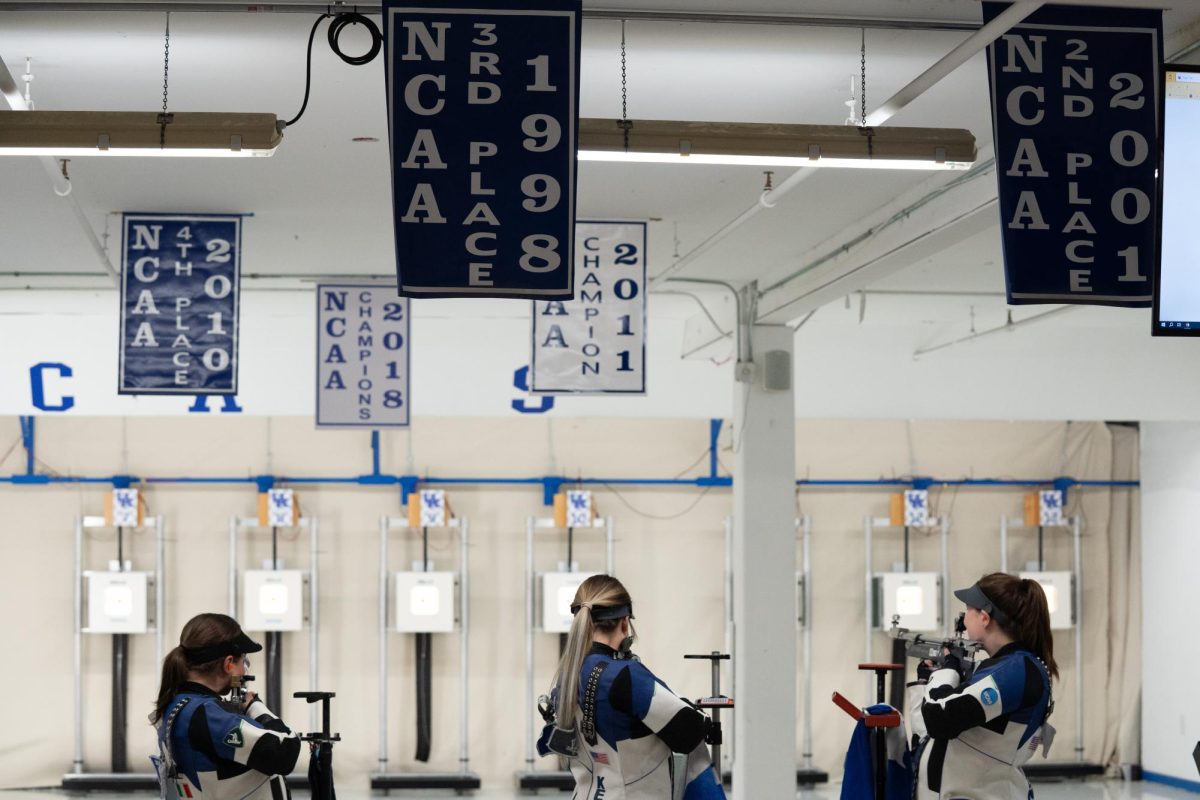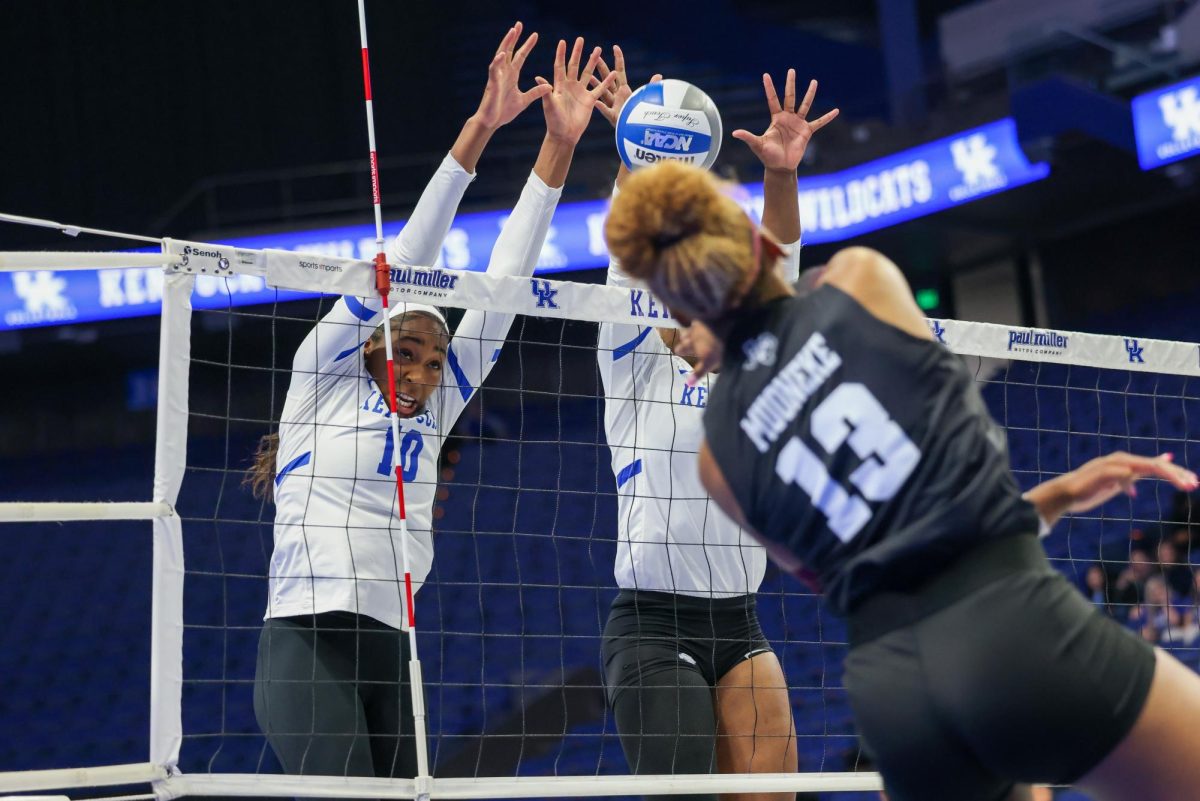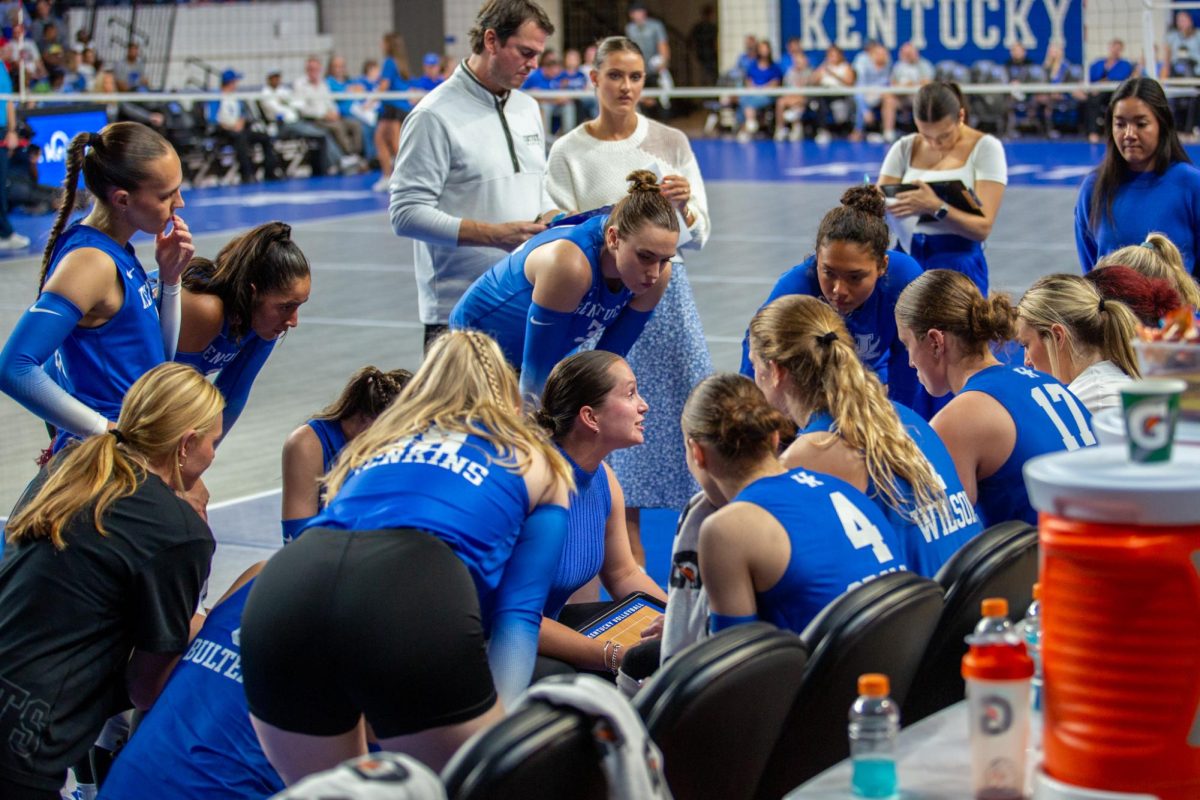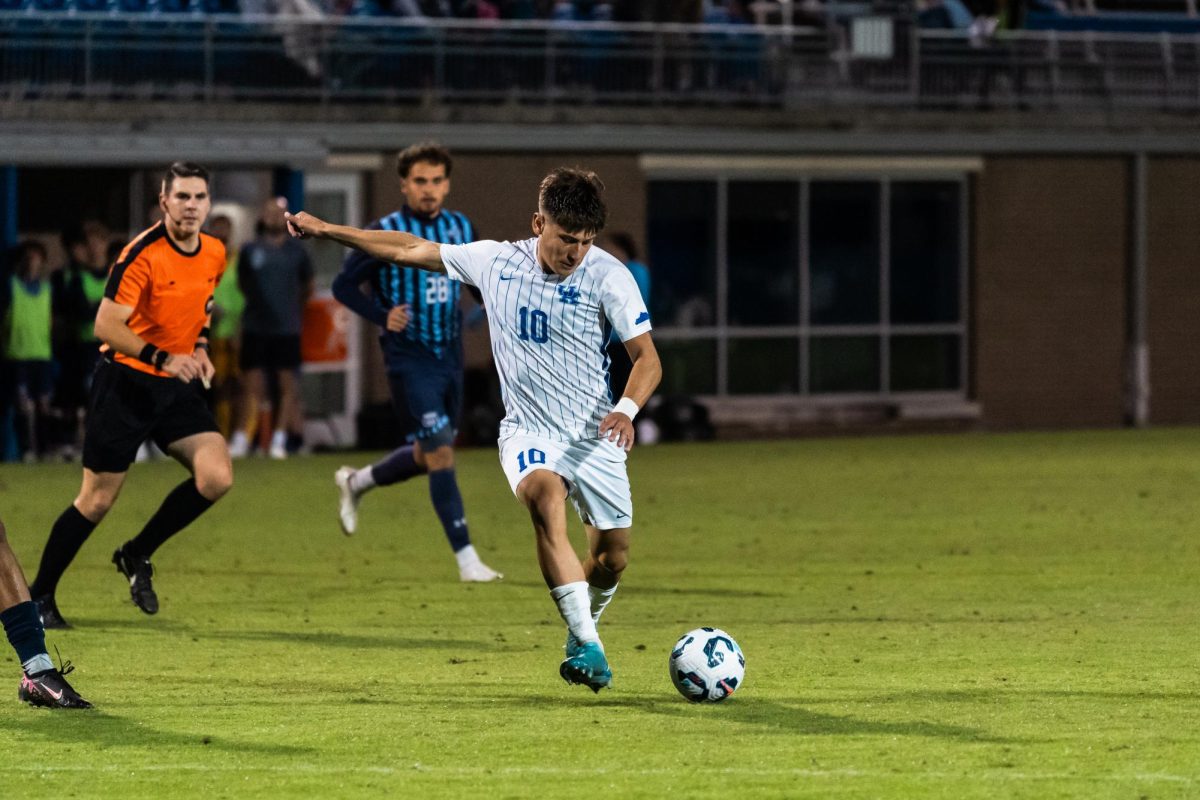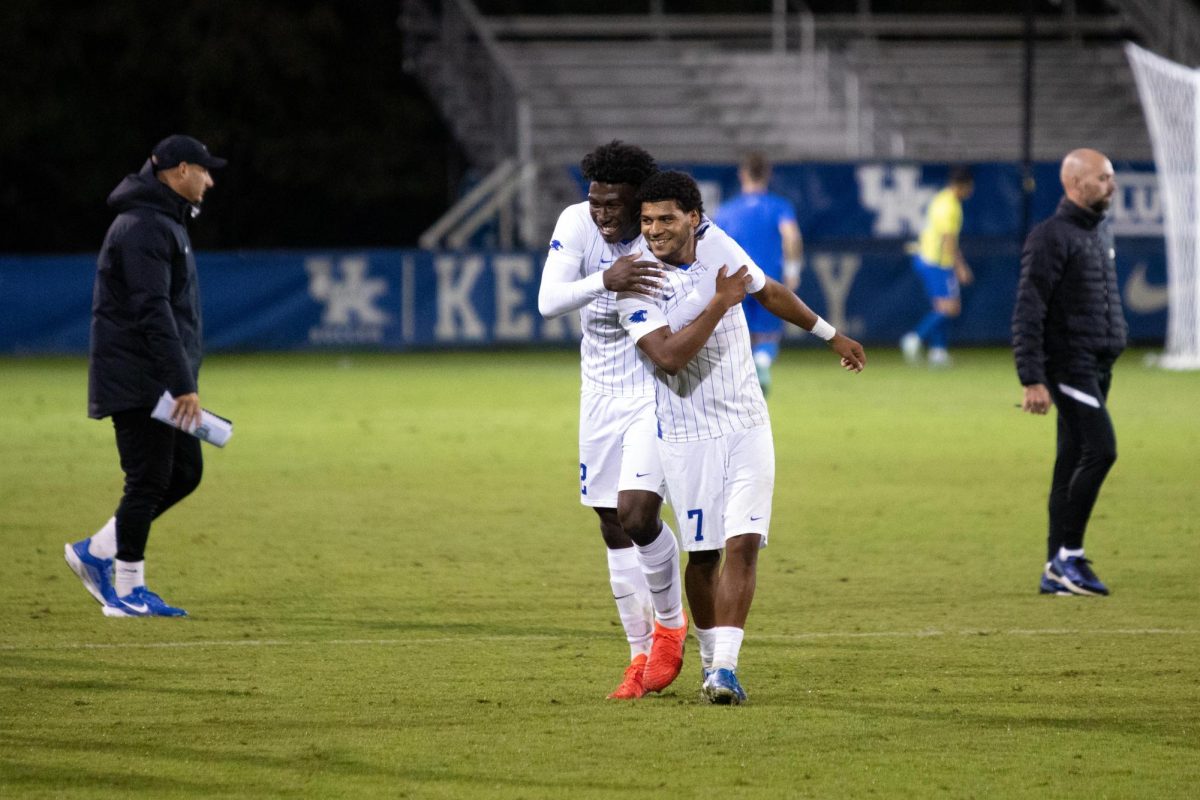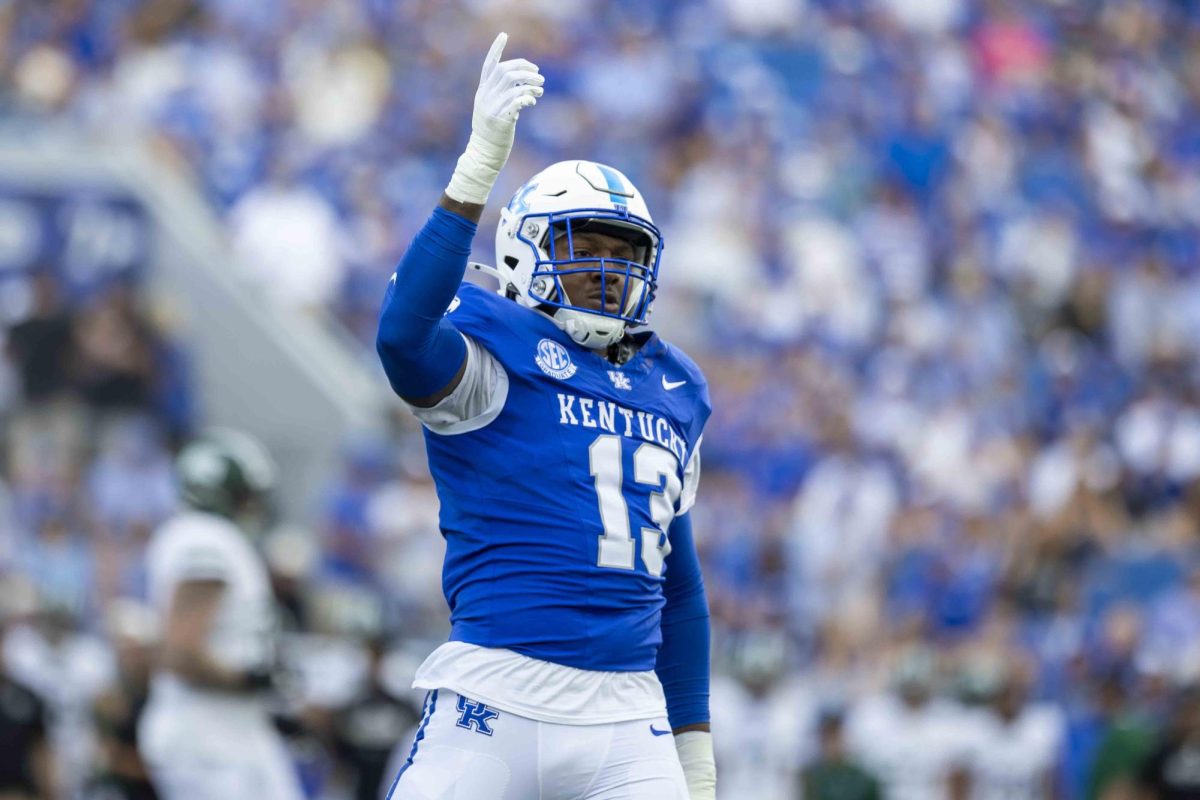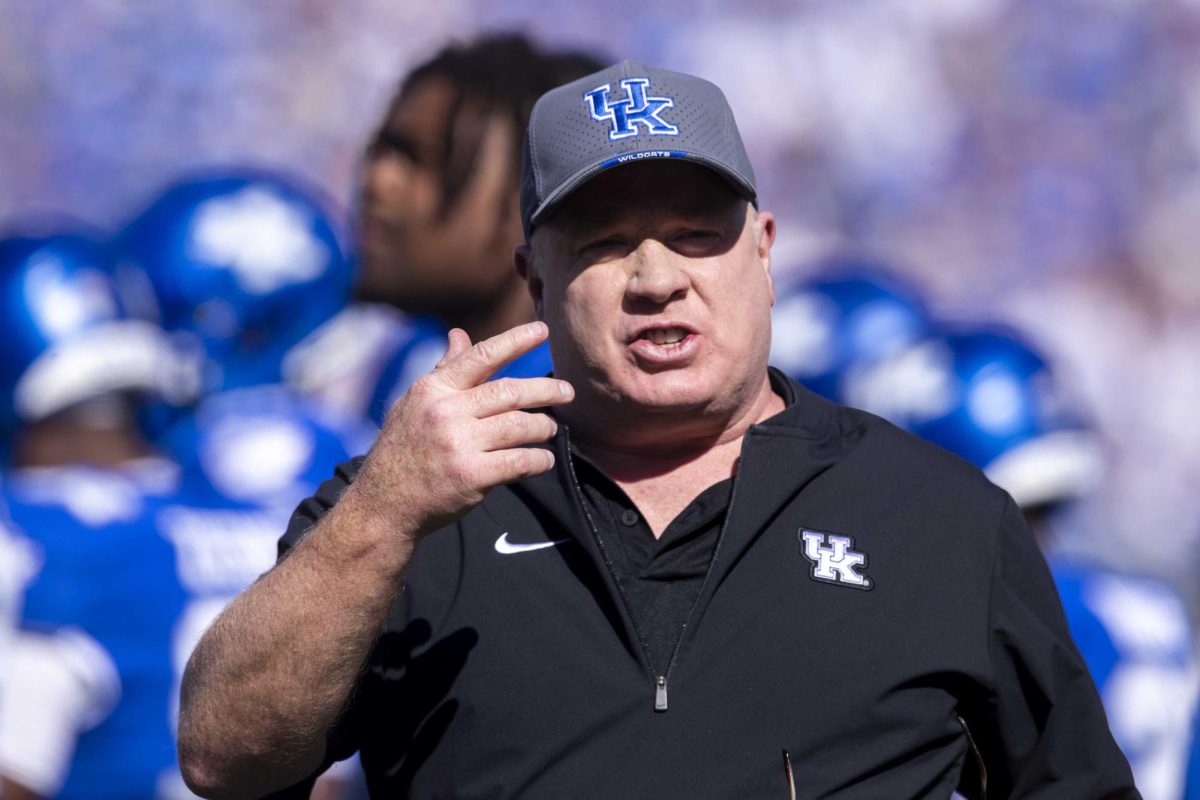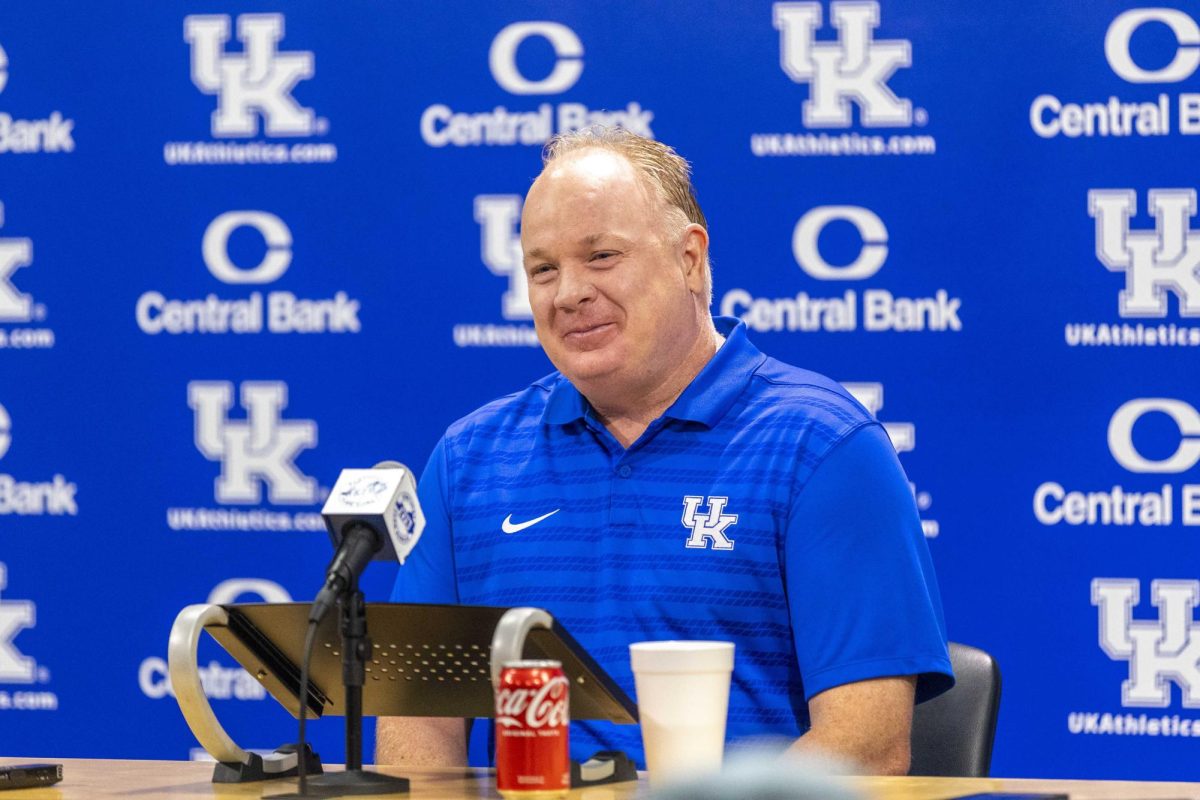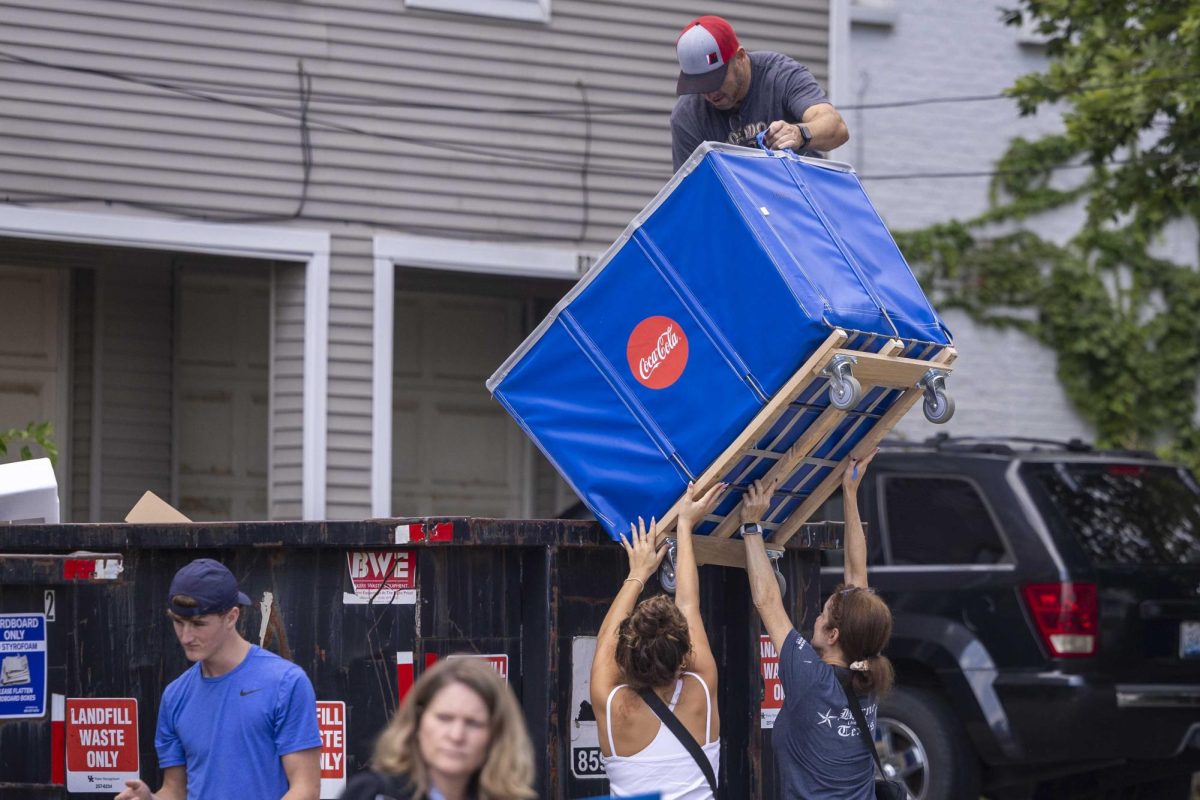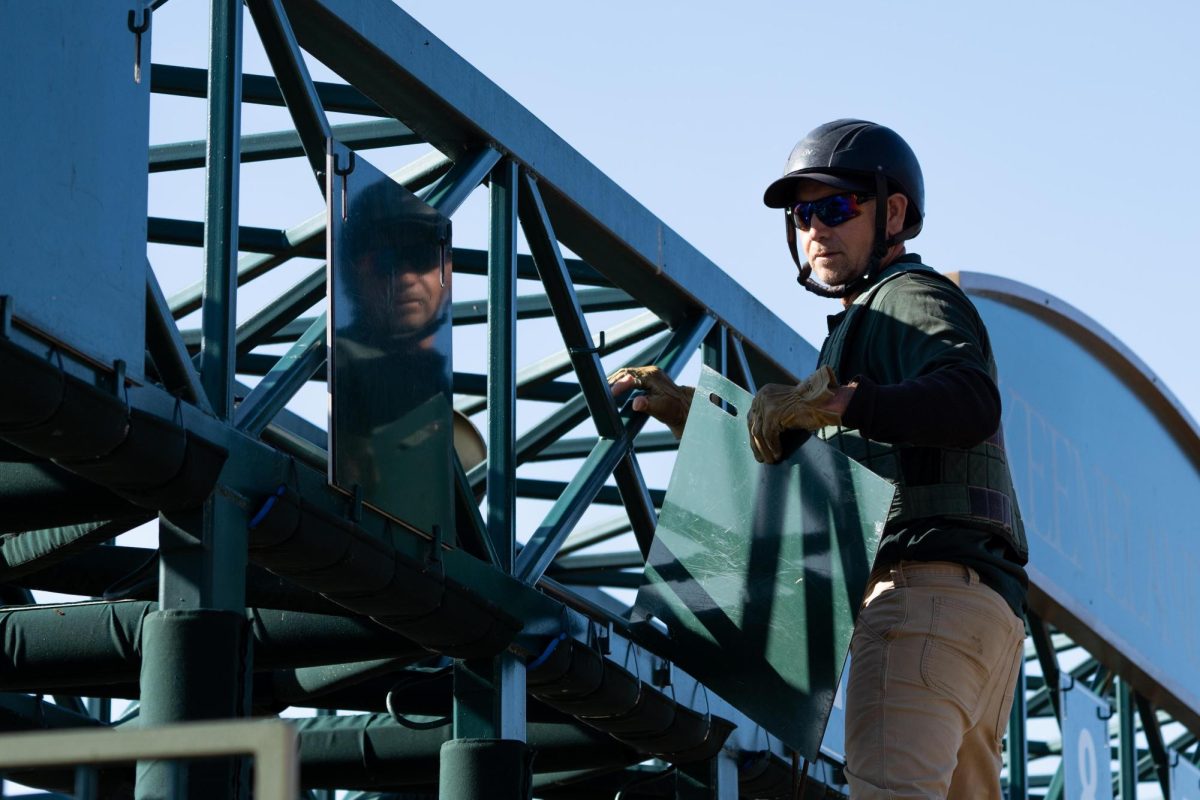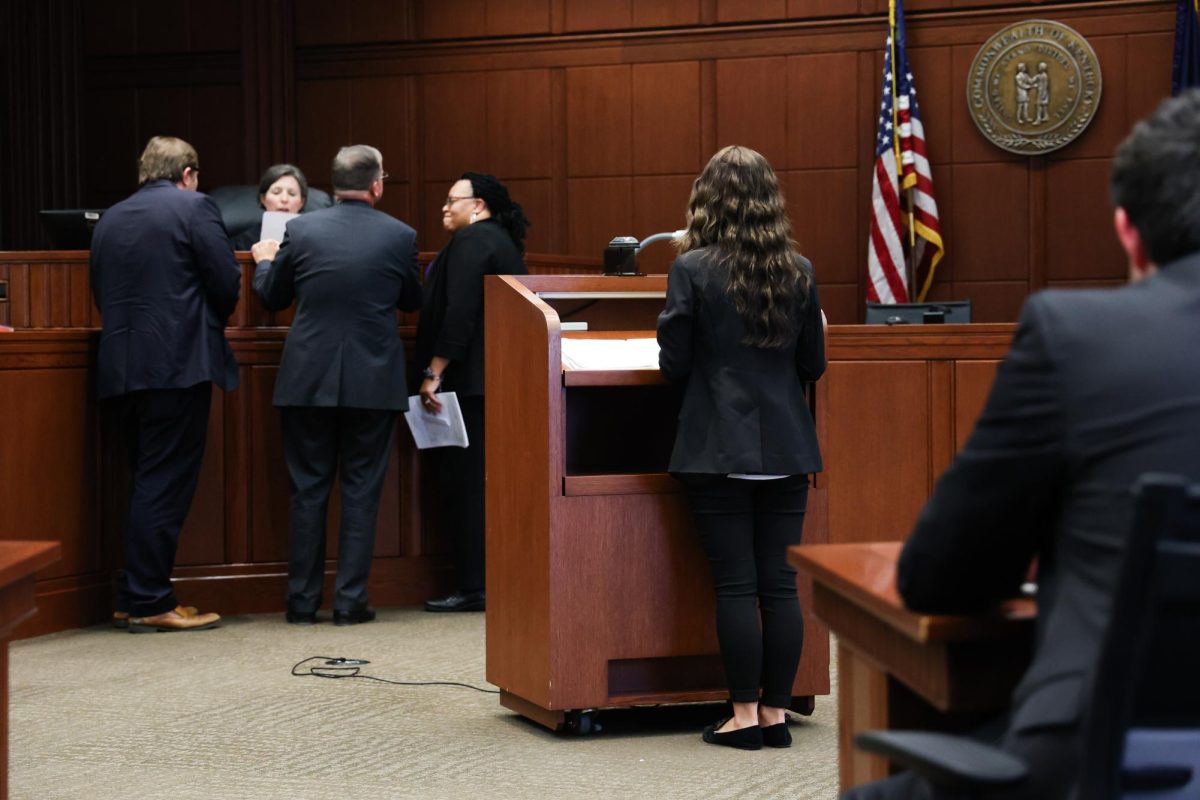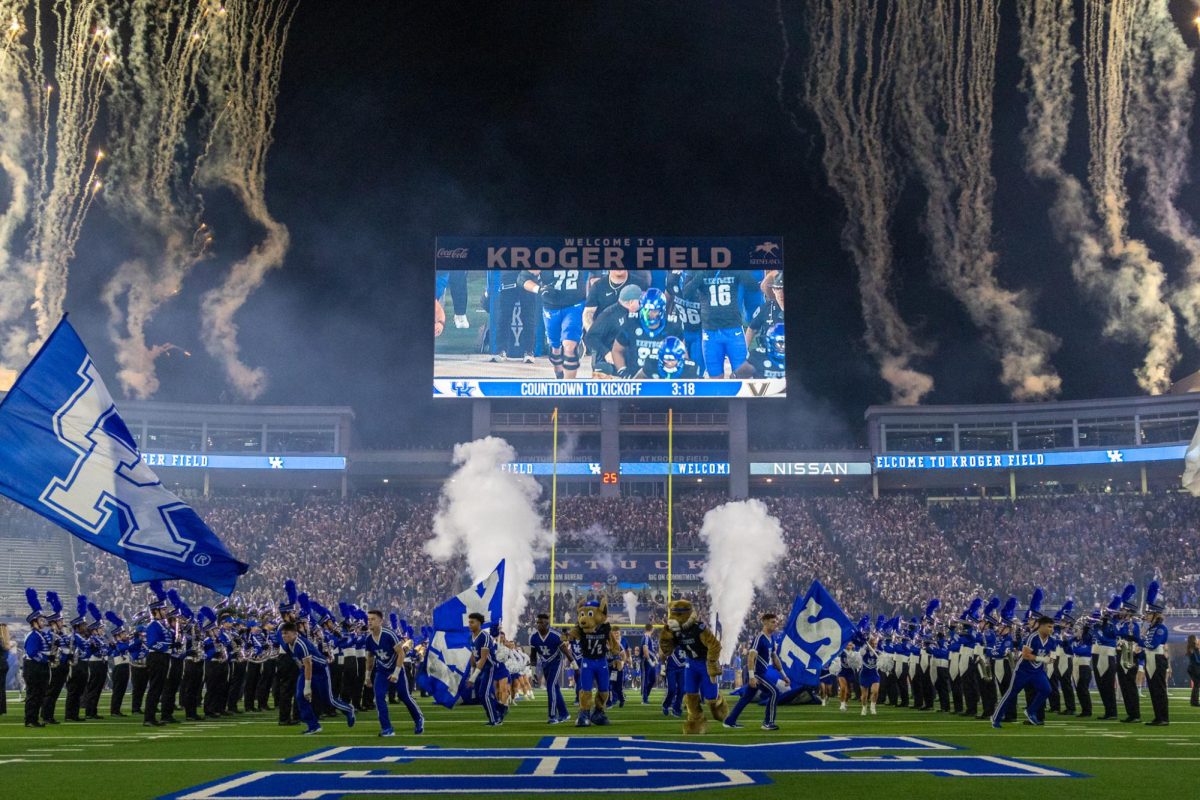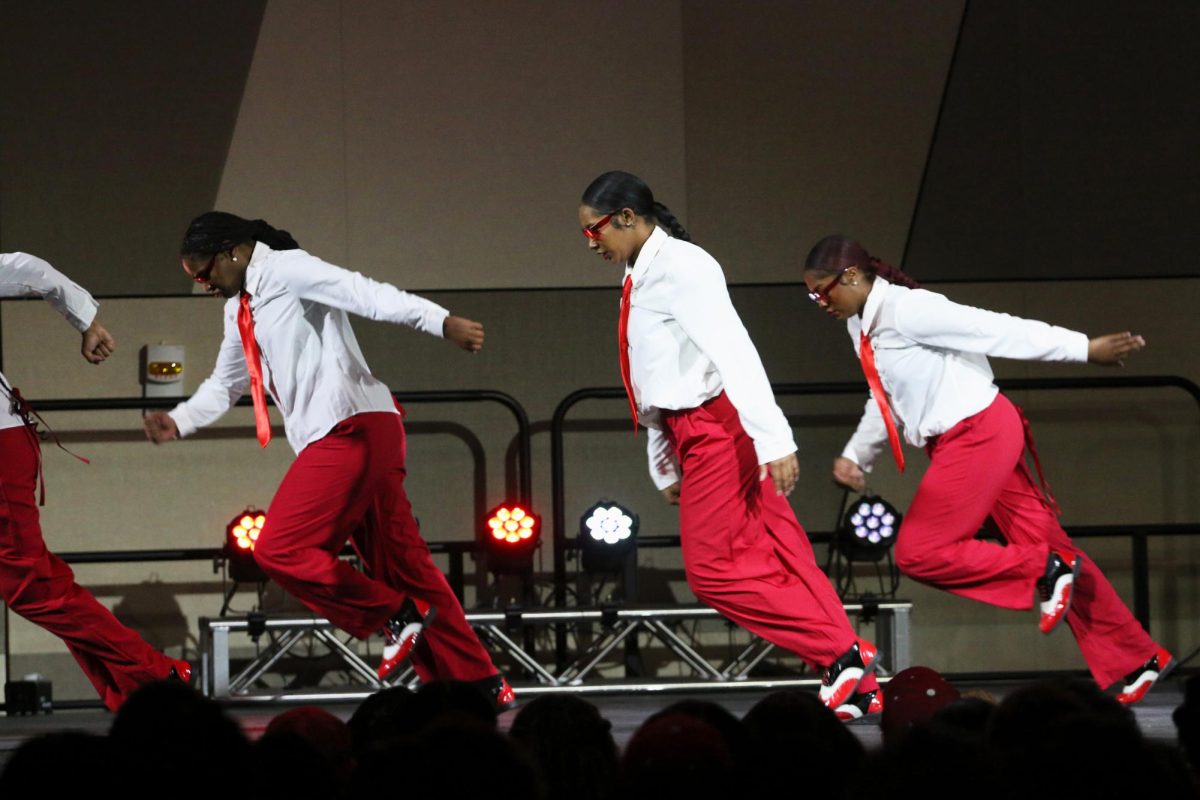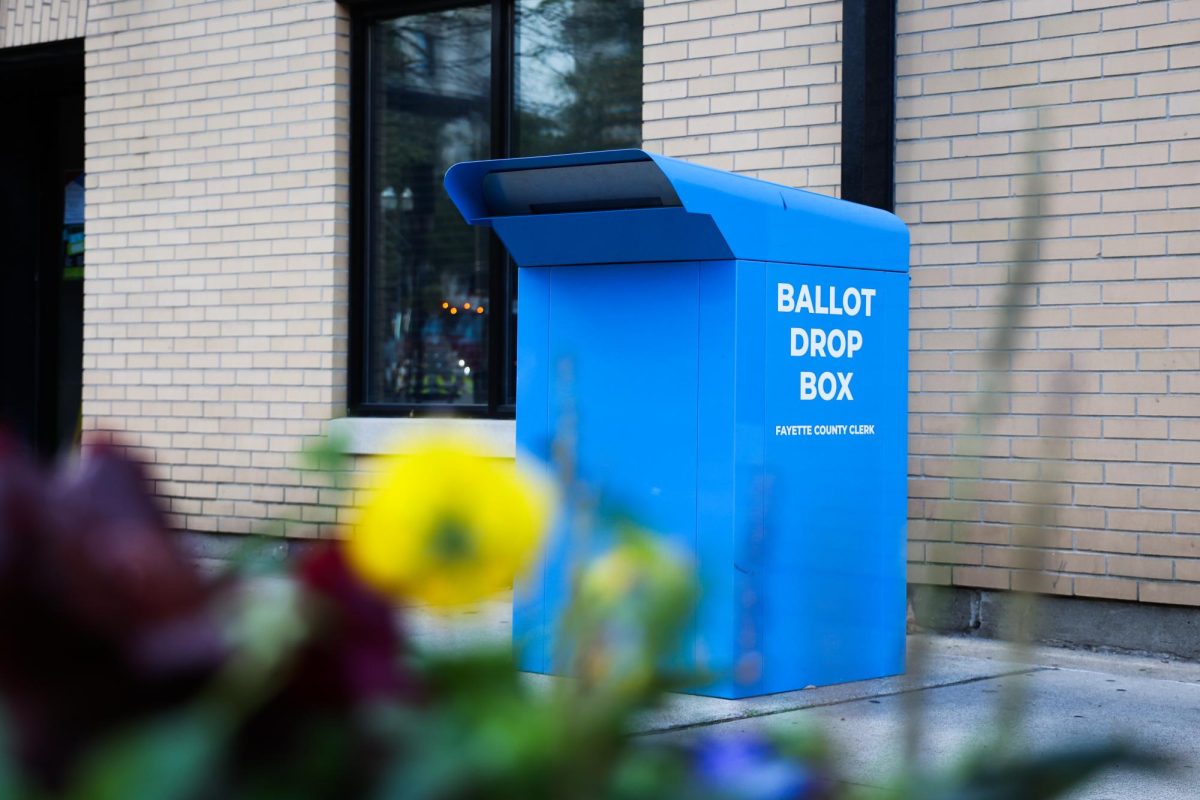Mining Engineering program a rarity
October 21, 2010
By Rebecca Clemons
UK is known for award-winning athletics and strong equine programs, but one unique department is often overlooked.
UK’s mining engineering program is one of only 13 accredited programs of its kind in the country, and it’s one of the oldest.
The program says its fall 2010 undergraduate enrollment of 205 students is the largest in the U.S., according to professor and chair of the department of mining engineering Rick Honaker. Approximately 10 percent of the enrollment consists of out of state students.
“Mining engineering is a major that few people automatically think of, yet it is one of our most important programs,” mining engineering junior Katie Gardner said. “If a resource cannot be grown, it must be mined.”
She said the program at UK is especially important because of the importance of coal to the economy of Kentucky.
Mining jobs are in high demand not only in Kentucky, but also nationwide, Honaker said, noting that UK’s program is not just about coal.
He said that research being done at UK covers a wide array of topics, from homeland security to explosives to mine ventilation.
Explosives and blasting expert and associate professor of mining engineering Braden Lusk took part in a 12-episode series on the Discovery Channel called “The Detonators.” It premiered in 2009 and still airs today. Nearly a million people watched some of the episodes, Lusk said.
“One of the main reasons I did the show was because I feel that it’s my obligation to show the good things and the science behind explosives,” he said.
Although essential to mining, Lusk said many people feel uneasy about explosives, and he saw the show as a way to communicate with the public about their use in the industry.
With such few mining engineering programs and students in the country, graduates are hot commodities, Honaker said. He said it’s a “very attractive field,” with 100 percent job placement and an average $60,000 or $70,000 starting salary.
“The age of the workforce in mining is steadily increasing, so it is an industry where people are greatly needed,” Gardner said.
Honaker said UK generates mining engineers that will continue to address critical issues in the industry.
Safety is one of these issues, recently brought to the limelight with the story of the Chilean miners.
UK offers courses about mining health and safety, especially in regards to ventilation for underground workers, Honaker said. Every mine plan designed by students must be approved by the Mine Safety and Health Administration.
“Everything we do is related to safety,” mining engineering senior and president of the Norwood Student Chapter of the Society of Mining and Metallurgy and Exploration Kristopher Milner said.
“In every class that deals with any sort of infrastructure, being an engineer that does what is safe is emphasized, whether it be pillar design, roof control, ventilation, etc. The theme of safety is also reinforced by the companies that visit us, all of which make [it] known that safety is their first priority.”
“[Safety] is a huge issue,” mining engineering senior Anthony Tharp said. “There’s a misconception that a lot of corporations focus on profit and not safety.”
Focusing on specific issues within the mining industry is achieved through an ample amount of faculty with an array of specialization, Honaker said. Tharp noted that many UK professors in the program are some of the top experts in their fields worldwide.
Additionally, Gardner recently started a chapter of Women in Mining at UK to attract women to an industry where there are very few. However, she said there are many opportunities for women in the industry.
In terms of student enrollment, research and faculty, UK is among the best mining engineering programs, Lusk said.
“If you wanted to list the top programs in mining engineering, we’re on the list; at the top of the list, probably,” Lusk said. “I’d like to think we’re the best program.”




